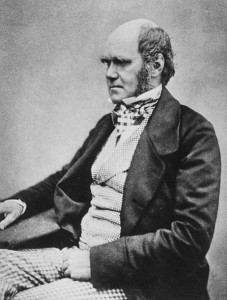Naturalism:
Naturalism was a literary movement that took place in the late 1800s and the early 1900s. Naturalism followed Romanticism and Victorian literature. Naturalism is also closely related to realism. Naturalism’s goal is to depict the world in a more honest and straightforward way, whereas Romanticism is full of symbolism, imagination, and emotion. Naturalism and realism focused on stripping this fluff away and getting to the real problems of the world. There is not always a happy ending. (Calareso, n.d.)
According to Carol Scheidenhelm, “The term Naturalism describes a type of literature that attempts to apply scientific principles of objectivity and detachment to its study of human beings. Unlike Realism which focuses on literary technique, naturalism implies a philosophical position: for naturalistic writers, since human beings are, in Emile Zola’s phrase, “human beasts,” characters can be studied through their relationships to their surroundings. The Naturalist believed in studying human beings as though they were “products” that are to be studied impartially, without moralizing about their natures.” (Scheidenhelm, 2007)
The research of Charles Darwin also heavily influenced naturalism. The concept of Social Darwinism, or the survival of the fittest, was portrayed through many works of naturalism. Class and heredity are portrayed as obstacles that are impossible to overcome. Also, nature is not always designed to help humans. Instead, nature is portrayed more realistically. In some naturalist novels, nature repeatedly knocks people down, leaving them more and more hardships to overcome. (Calareso, n.d.)
Charles Darwin seated
by Henry Maull, used under ![]()
Revolutionary characteristics of naturalism:
Naturalism focused on real world problems. The naturalist authors were so hopeless and desperate for a change in society that they took to writing to bring attention to these problems. Class distinction, war, gender inequalities, and prostitution are only a few of the world issues that Naturalism depicted. Romanticism had simply glazed over these issues and always portrayed a happy ending. Naturalism made a point to be realistic, even if that meant the hero did not prevail and live happily ever after. (Calareso, n.d.)
References:
Calareso, J. (n.d.). Naturalism in Literature: Authors and Characteristics. Retrieved April 10, 2014, from Education Portal: http://education-portal.com/academy/lesson/naturalism-in-literature-authors-and-characteristics.html#lesson
Scheidenhelm, C. (2007, August 14). Naturalism. Retrieved April 7, 2014, from Loyola University Chicago: http://www.luc.edu/faculty/cschei1/teach/rrn3.html
Maull, H. (1854). Charles Darwin seated. [Digital Image]. Retrieved from http://en.wikipedia.org/wiki/File:Charles_Darwin_seated_crop.jpg. Public domain image.

